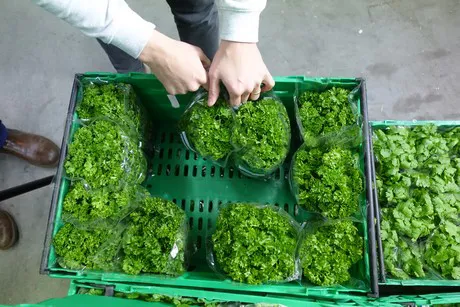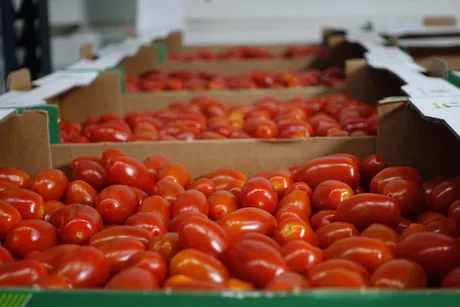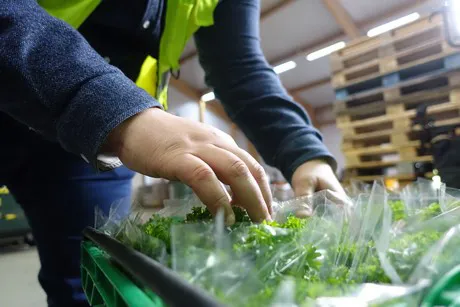Iceland’s main supply of fresh produce depends on the import industry, because the country’s climate doesn’t allow enough local production to sustain the country. Jóhannes Þór Ævarsson, managing director of fresh produce for Innnes import and wholesale company, tells us: “Our local greenhouse technology is advancing with great leaps, but the open field production is facing some tough times. The open field cultivation focuses mostly on potatoes, carrots, cauliflower and broccoli. Even this year, when the summer was better than it has been in a long time in Iceland, the harvest lasts only from July to late autumn, so the volumes just aren’t enough.”

Even though the country depends on the imported products, the popularity of locally grown produce is on the rise, just like it is in many other European countries. Jóhannes says: “Iceland has huge potential for growing fresh produce, but it is difficult to reach this potential because the greenhouse growers are burdened by high energy prices, and the open field growers are not seeing young people enter the business. The consumers love the local produce, though, so the demand is definitely there.”
For now, the country will have to continue to rely on import companies like Innnes, but that’s okay, Jóhannes says: “The Icelandic market is in an exciting time right now and business is going well for us, we are very happy with the developments of the market this year. We are seeing a big rise in the demand for cauliflower and broccoli with our consumers. This is because of the low-carb diet trend which is popular throughout Europe. Berries, too, are always in high demand because their many health benefits are being put into the spotlight much more often.”

Products that have been more difficult to obtain include strawberries, cucumbers and avocados. Jóhannes explains: “The strawberries have been hard to get this summer. Usually we see more drop in price when the fruit enters its normal season but we didn’t see that this summer. We import our strawberries from Spain, Belgium, the Netherlands and sometimes the U.S., but the weather this year has caused supplies to dwindle. But we are happy with our Icelandic production and it has been very good this year.”

“Cucumbers are an issue this year because we produce them locally but our own supplies weren’t enough to meet demand and importing them has proven to be quite expensive. Avocados, too, are extremely expensive. The demand for these is getting to be really high, which ties into the low-carb trend we are seeing, but due to the fires in the U.S. last year, the supplies have really decreased and the prices are still continuing to rise.”
 Spain is one of the company’s main suppliers of leafy greens, and the recent storm has wiped out a lot of the crops, Jóhannes says: “We work closely with suppliers in the Murcia region, and after the storm they are struggling to supply the salads we usually buy from them. Right now, we are having to look elsewhere in the market to meet the demand, but the Spanish companies we usually work with are very professional, good companies and I am sure that they will catch back up very soon.”
Spain is one of the company’s main suppliers of leafy greens, and the recent storm has wiped out a lot of the crops, Jóhannes says: “We work closely with suppliers in the Murcia region, and after the storm they are struggling to supply the salads we usually buy from them. Right now, we are having to look elsewhere in the market to meet the demand, but the Spanish companies we usually work with are very professional, good companies and I am sure that they will catch back up very soon.”
As for new markets they hope to be able to import from in the future, Jóhannes is very please with the possibilities ahead: “Northern Italy has really high quality apples, and we are also beginning to import more and more from Poland. Polish apples and blueberries have good quantity and quality and we would like to do more with their markets” he concludes.
For more information:
Jóhannes Þór Ævarsson
Innnes
Tel: +354 532 4401
Email: jta@innnes.is
www.innnes.is
